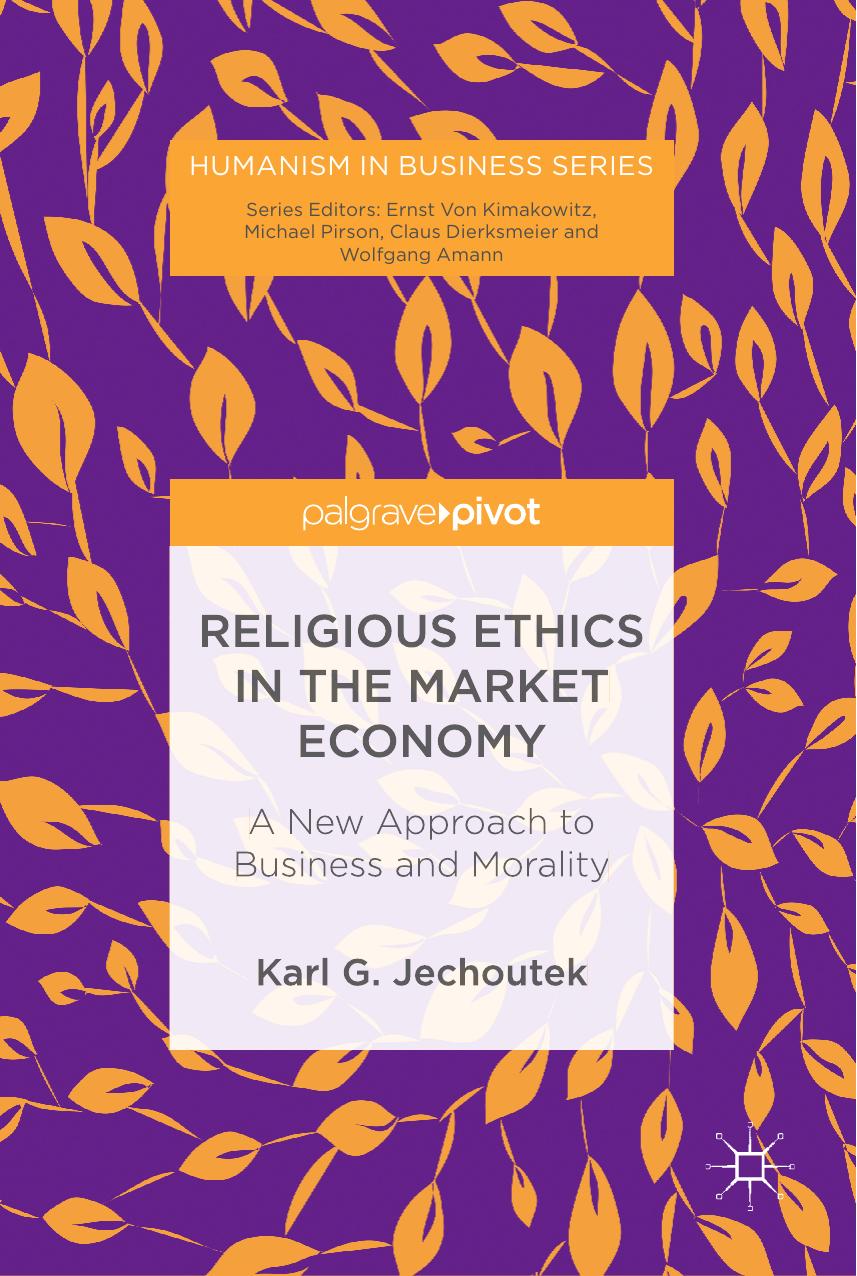Religious Ethics in the Market Economy by Karl G. Jechoutek

Author:Karl G. Jechoutek
Language: eng
Format: epub, pdf
Publisher: Springer International Publishing, Cham
Max Weber pioneered the analysis of the interaction between religion and economic behaviour, arriving at the concept of certain religious ethical dispensations being conducive to the development of capitalism and entrepreneurial action. Ever since, scholars have tried to test this empirically, with mixed success. Scholarly argument has raged whether it was Calvinist Protestantism, Catholic universalism, or the simple fact of generic religious faith that led to the emergence of European market economies, and whether this template can be applied to the development of today’s emerging economies. But causality is not the most relevant feature of holistic change – the search for what came first can become sterile. Much more important is the fact that there is a march in lockstep of economic change and the change in values that accompanies it. As the socio-economic context changes, cultural and ethical norms are subject to change as well. Correlation, not causality, is happening.
The key features of development seem to be the changing values of individuals in a society. Empirical data show that income growth is correlated with a structural change in values in a society, moving from a “pre-modern” hierarchical, traditional, spiritual, communitarian, and survival-based set of values, through a “modernist”, more growth-oriented set of secularist and rational values, to a “post-modern” set focused on self-expression, tolerance, a new spirituality, and quality of life. This meandering process of change has been explored over the last two decades by the multi-country “World Values Surveys ”.2 The countries in which values have been surveyed cluster in related cultural/religious groups, displaying common values that are associated with a characteristic socio-economic state of affairs.
In this reading, human development moves from an egalitarian, survival mode of living to a growing and more differentiated society. A traditional society with a static economy and little integration with other economies relies on a zero-sum approach to life. An accumulation of wealth or increase of income by individuals must come from the loss of others in the community. Hence, the need for egalitarianism and redistribution, to keep envy at bay and ensure the cohesion of the community. In the same way, the internal hierarchy must be stable, and mobility within the hierarchy limited, to make sure that there is no strife that could weaken the community vis-à-vis others. Traditional authority is strong and sustained: both secular and religious leaders are secure in their status. Adherence to religious guidelines is solid; the spiritual life of the community is homogeneous and ruled by traditional rites and laws. The religiously anchored values such societies live by are straightforward and clearly defined and do not leave much room for deviation from the norm. Individual behaviour is circumscribed by normative instruction.
Rural areas of contemporary African societies display this traditional package of values, exhibiting a strong cohesion within clan and extended family, and a defensive stance vis-à-vis outsiders. The need for preserving the survival of the community in the face of potential detractors is paramount, requiring the adherence to the rigid rules of the values package and ritual laws.
Download
Religious Ethics in the Market Economy by Karl G. Jechoutek.pdf
This site does not store any files on its server. We only index and link to content provided by other sites. Please contact the content providers to delete copyright contents if any and email us, we'll remove relevant links or contents immediately.
The 5 Love Languages: The Secret to Love That Lasts by Gary Chapman(8492)
The Space Between by Michelle L. Teichman(6086)
Assassin’s Fate by Robin Hobb(5236)
Wiseguy by Nicholas Pileggi(4585)
Everything Happens for a Reason by Kate Bowler(4067)
Gerald's Game by Stephen King(3918)
A Simplified Life by Emily Ley(3567)
The Power of Positive Thinking by Norman Vincent Peale(3446)
Pillow Thoughts by Courtney Peppernell(3394)
Resisting Happiness by Matthew Kelly(2886)
Girl, Wash Your Face by Rachel Hollis(2820)
Being Aware of Being Aware by Rupert Spira(2705)
Name Book, The: Over 10,000 Names--Their Meanings, Origins, and Spiritual Significance by Astoria Dorothy(2490)
Real Sex by Lauren F. Winner(2474)
More Language of Letting Go: 366 New Daily Meditations by Melody Beattie(2442)
The Holy Spirit by Billy Graham(2414)
Fast Facts on Defending Your Faith by John Ankerberg & John Weldon(2387)
Victory over the Darkness by Neil T. Anderson(2385)
The Secret Power of Speaking God's Word by Joyce Meyer(2252)
